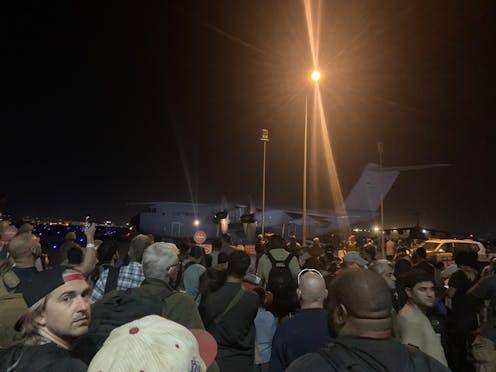An Afghan American scholar describes his fear-filled journey from the chaos at Kabul airport to a plane bound for home in the US
- Written by Hanif Sufizada, Education and Outreach Program Coordinator, University of Nebraska Omaha
 The author was in this crowd, finally boarding a plane to leave Kabul.Photo: Hanif Sufizada
The author was in this crowd, finally boarding a plane to leave Kabul.Photo: Hanif SufizadaEditor’s note: Afghan scholar Hanif Sufizada, who works at the Center for Afghanistan Studies at the University of Nebraska Omaha, got caught in Kabul during the chaos of the U.S. military pullout, when thousands of Afghans fled to the airport, seeking...

















